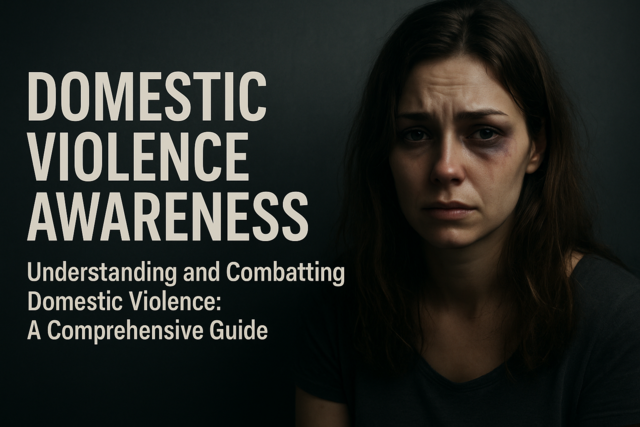Introduction
What Is Anger?
Anger is an emotional state that occurs when unexpected things happen to you, or around you, that you don't like.The feelings you have can be as mild as annoyance, and as extreme as fury and rage.The American Heritage dictionary describes anger as "a strong feeling of displeasure or hostility," and explains that the word itself is rooted in a Middle English word "angr," that meant sorrow.
Anger is a very subjective emotion.What makes one person angry may not bother another person at all.There are three basic types of anger that psychologists recognize as being different emotional states. The first is a defense mechanism that occurs when we feel threatened or trapped. The second form of anger exists as a reaction to the interpretation of events in which we believe that we are deliberately being harmed or being treated unfairly. The last type of anger is the irritable, sullen anger more closely associated to personality than to emotion.
Basically, anger is the emotional response you feel when your expectations are not met. It might be an unmet expectation that people will do the "right" thing (like return your wallet, money intact, when you lose it in a restaurant or at the mall); or that people will do things the "right" way (like when you asked your son to wash the car and he didn't rinse off the soap and you had to re-wash it yourself, but you didn't discover it right away so there was more work involved). It might be an expectation that you will have a good day, that traffic will flow smoothly � and then you get caught behind a 14-car pileup on the freeway. It may even be an expectation that you have of yourself -- expecting yourself to be able to do a certain specific task or perform a certain function, and then when you are unable to perform at the level you expected of yourself, you become angry.
Many times, people do not realize they are angry until it is too late -- when they are saying horrible things to someone whom they love, or behaving violently toward someone.Some people will not realize anger has done any damage until well after the reaction they have had, when they are dealing with the consequences of the action (like getting arrested for domestic violence, or brawling in a pub). Part of anger management is learning to recognize the feeling of anger before the reaction to anger happens.
What Causes Anger?
The emotion of anger can be set off by both internal and external triggers. Internal triggers may include reactions to things you may already be sensitive about, like being teased. External triggers are things beyond your control that don't happen in the way they should. Certain situations can make you angry � particularly when you feel like you have no control over circumstances (you show up for a doctor's appointment you've been waiting to go to for more than a month, and when you get there, the doctor has been called away to surgery).People can make you angry. Even memories can make you angry.
Anger is an instinctual emotion that can cause an aggressive urge. It is a completely normal response; it is an ancient part of our defense mechanism that allowed us to survive, adapt, and defend, making it a necessary survival instinct.Anger is a completely normal and natural feeling to have.However, inappropriate anger response is often the cause of altercations, run-ins with police, domestic violence issues, and other less favorable outcomes.
Sometimes, our behavior when we're angry becomes a comfortable habit � a feeling we are used to having. We recognize the feeling of anger, without even realizing we are angry, and react in a habitual, but unhealthy way without stopping to think about what it was that made us angry, or why.Part of anger management is to learn to stop that habit of reaction.
Summary
Anger is a normal, natural emotion, and without it we would be less able to defend ourselves when needed. However, our physical reaction to anger and the way we express anger can become a problem for some. Anger management helps people learn how to recognize and control their reactions to anger.
Anger is more than just an emotion or an instinctual response. In fact, anger actually causes fundamental changes to our physiology and psychology when we are experiencing it. However, before you can learn to identify anger (and therefore control it), you need to understand the many different ways in which it can affect you.This chapter will cover the psychological, physiological, and cognitive responses your body has when you are experiencing feelings of anger.
History of Anger Study
There are volumes of work by a number of psychologists on the subject of anger. All of them attempt to explain the psychology of anger � why anger happens and what it does to us. Basically, anger is part of the ancient fight or flight response to the perception of pain, stemming from early man, who had to fight to survive.
Sigmund Freud , known as the father of psychology, believed that anger was an emotional development stemming from the anal stage. Freud's psychoanalysis dealt with different stages of development and was mostly based on sexual development and repression. The anal stage had much to do with control (or lack of it).
Seneca, an ancient Roman philosopher from 45 B.C., broke down anger management into three parts. First you must find ways to avoid becoming angry in the first place. Second, you must learn how to stop your angry feelings when you have them. Last of all, you need to learn how to express your angry feelings to others in an appropriate way. He was truly wise, for all these years later, we use the same basic model.
Physical Response to Anger
When an animal in the wild (or even a house cat) becomes angry because of a perceived threat, it growls or hisses, shows its teeth, and attempts to seem more threatening. The human response to anger is very similar, in that the response is designed to make the perceived threat stop and go away. (You are teasing me and I want you to stop, so I am going to lash out at you or threaten to hurt you because I don't want to feel this way anymore). Unfortunately, like with everything in the human mind, anger in humans tends to be more complicated than in the animal world. Humans are often doing more than just protecting themselves against threats.
The psychological response to anger stems from the physiological response. The hormones surge through your body, and you begin to feel a heightened sense of power and energy. Unfortunately, that same psychological response that saved us from the saber-toothed tiger when we lived in caves, is also the cause of a lack of reason, clarity, and judgment when not managed properly today. When you become angry and lose control, you often feel justified in your reaction, because you are not capable of logically thinking through the effects of your actions once you stop controlling the anger.
It's sometimes very easy to see when someone is angry. Sometimes you can see it in the facial expression; even children know how to draw an angry face by narrowing the eyebrows and pointing them down toward the nose. It's not just the eyebrows, though -- your skin turns red from a rush of blood, your nostrils may flare out, and your jaw may clench.
The body releases hormones that tense the muscles, as if the body is preparing for battle. You will see people who are angry stand up straighter and more squarely. It's an instinctual preparation for attack and defense. All of these physical actions make you feel more invulnerable.
Your body physically responds to all of your emotions; when you are sad, your shoulders droop, your heart rate slows, your face frowns � you cry. When you are happy, your body produces surges of serotonin, you smile, your energy levels increase, and you feel more confident. When you are angry, your body experiences a surge of hormones similar to those you experience when scared or threatened: adrenaline and noradrenaline. These hormones are produced as part of the fight-or-flight response to danger. The physiological experience of anger can be quite disturbing, leaving you with a pounding heart, a dry mouth, and a shaky feeling.
Cognitive Response to Anger
Humans differentiate themselves from the rest of the animal kingdom by their cognitive functions � their higher thought processes concerning their instinctual responses. It is these cognitive responses that keep psychologists and psychiatrists in business, particularly when it comes to the more complicated emotions like anger, love, and jealousy!
Summary
Anger is an emotion that elicits responses from three areas. There is a psychological response to anger, causing a heightened sense of power, but a lack of reason, clarity, and judgment; a physiological response that causes a surge of adrenaline, an increased heart rate, and other physical manifestations; and a cognitive response, where you either express or repress your anger, or calm yourself.

























